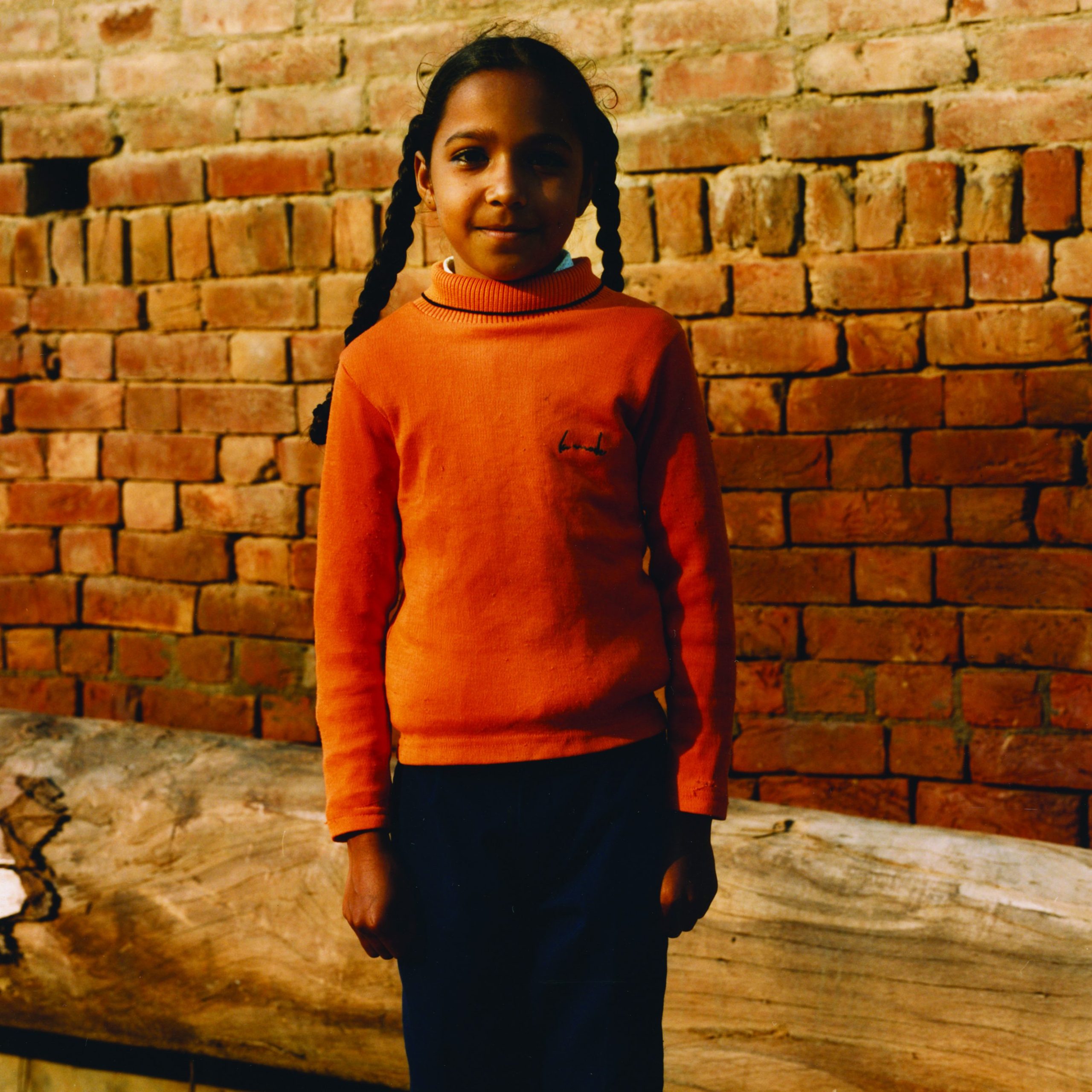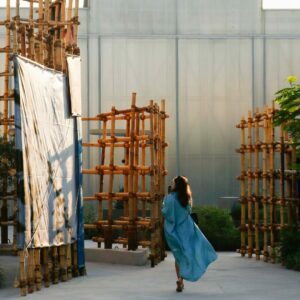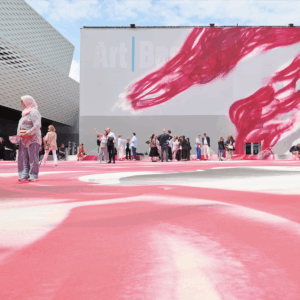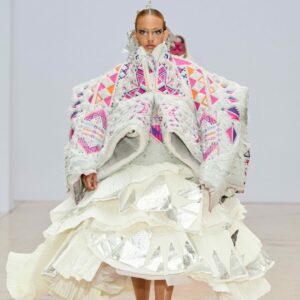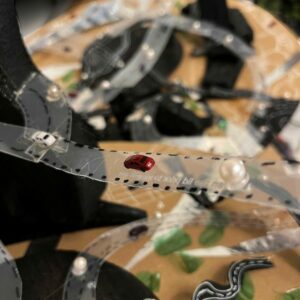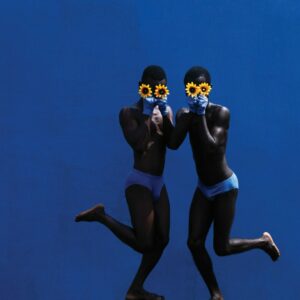Weaving between half-staged portraits, candid interiors and expansive landscape shots, the extensive works of French-Moroccan photographer Ilyes Griyeb are both a documentary tool and art form, underpinned by a penetrative perspective on decolonisation. Traversing the realms of documentary, portraiture, fashion and fine art, Griyeb’s photography aims to regain control over narratives that have been left abandoned to foreign lenses.

His work is not only about creating striking portraits, but also spotlighting cultures and voices that have been exploited by the white gaze. “It’s a very simple thing that I want to correct because, of course, I am not like a white person at all, but I have this bridge between two points of views,” he says. W.E.B. Du Bois called this ‘double consciousness’, a dual understanding evoking the internal conflict and dual-identity, specific to minorities. It is this impression of always observing oneself through the eyes of the other, a view often tinted with pity.
Through his photographs, Griyeb attempts to rewrite western narratives that have created an aestheticization or victimisation of the subjects. “My goal is to bring a more accurate, deeper and human sense of understanding to topics that were approached by a white gaze or by a white person that hasn’t had deeper investment in understanding the narrative,” he says.

Ilyes Griyeb lets the story tell itself, only offering a frame and allowing the scene to unravel naturally before him as he snaps the perfect shot, saying, “When you shoot a documentary, you can write it beforehand – prepare it, build it, conceive it and direct it. But me, I think, I’m more of a spontaneous person. I create a frame that I want to evolve, but I always adapt to reality because I think the story builds itself in reality. It’s more like you follow the story’s energy, then you prepare the story.”
As a second-generation immigrant, the Paris-based photographer wanted to tell the story of Morocco as he saw it; as the son of a Moroccan farm worker, revisiting his roots, paying homage to his family. Born in France to Moroccan parents who immigrated in the 80s, Griyeb has spent his life split between these two countries, but has never lost touch with his roots.

His first voyage into photography started in 2013, when he moved to Morocco to capture his parents’ rural town, Meknes. From there, he would spend the next six years photographing his family and friends in their hometown. He captured everyday rural workers, presenting their lives not rooted in hardship but in craftsmanship, without seeking misery or exoticism, just the truth.
He stitched these unheard stories together to create his debut photography book ‘Morocco’, a deep exploration of his family’s roots translated through documentary and street photography. “Photography allowed me to connect very strongly with my Moroccan roots. It is actually what helped me get back in touch with a big part of my family that lives in Morocco, because I got to sit with them and shoot them in their everyday lives. My first book ‘Morocco’ was a kind of identity quest without me knowing it at the time, wildly. It was a way for me to stay connected to my roots,” he says.
The question of identity punctuates all of Griyeb’s work. He is part of the first generation of Moroccan immigrant children to have access to the artistic world. However, his approach is not based on demand. Instead, it yearns to fill a void, painting a portrait of the Moroccan working classes free of contempt, class differentiation or pity.

Outside of Morocco, he has photographed hundreds of faces in his travels across Africa, India and Europe, documenting many untold stories and a way of life that is slowly disappearing. His focus on agricultural life is rooted in his personal story and seeks a deeper universal truth that ties all of humanity together. “I really wanted to expand my personal story and find common things that human beings all over the world share,” says Griyeb. “We share the same issues. We are, for me, all descendants of farmers, if you go back like three or four or five generations. I think it’s our common path. Even though you can see that this traditional lifestyle in the poor countries is kind of disappearing – because they want to be more modern and integrate into the capitalist system – we can also see that we are going backwards, in the rich countries. But it’s not the same: the values, the cultural part of the agricultural lifestyle are quite rich.”
The work of Ilyes Griyeb – a mix of portraiture and landscape – tells this story with a certain charm, sincerity and stillness that draws you in and makes you pause. His ultimate aim is to tell the truth – raw, unfiltered, and exactly as it is.
Visit YUNG’s Art & Culture pages for more creative interviews.
